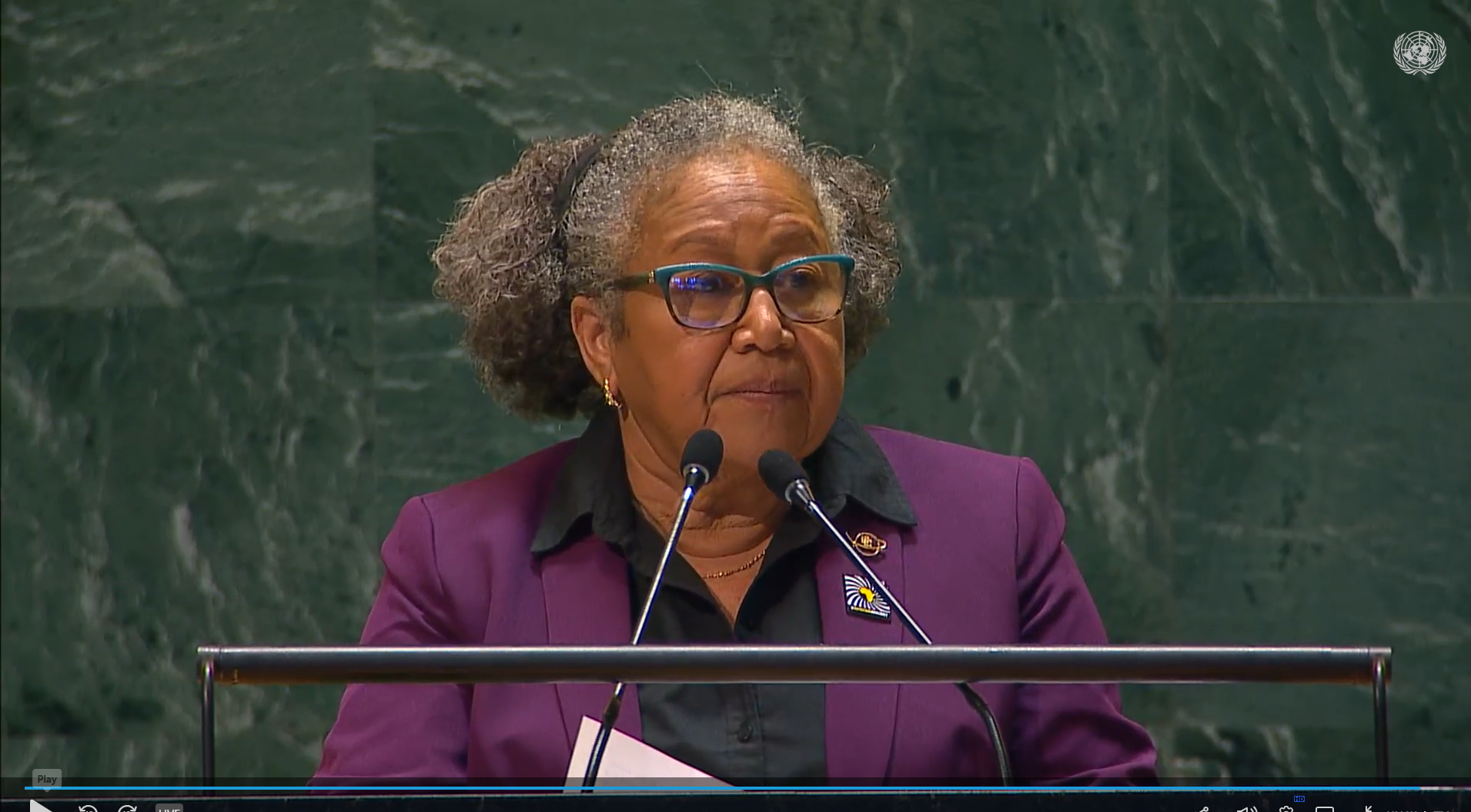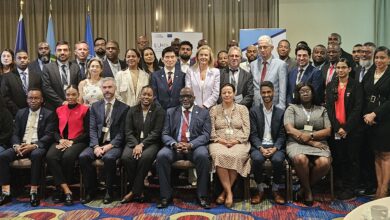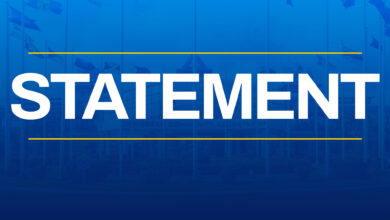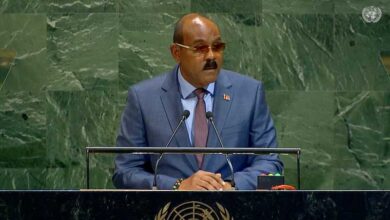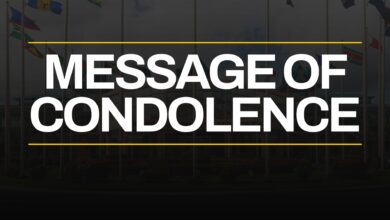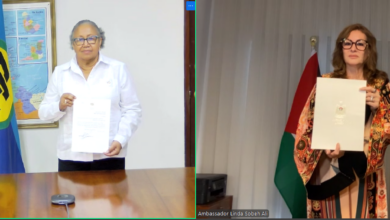“Reparations for Haiti continue to be central to CARICOM’s reparations claim. April 2025 marks the bicentenary of the indemnity of 150 million Francs imposed on Haiti by France as reparations for loss of property, including enslaved Africans, and as a precondition for recognising the island’s independence. The negative economic and social effects of this historical injustice are painfully clear, with arguable links to the situation in Haiti today. This Anniversary presents an opportunity to bring global attention and a deeper understanding of the situation in Haiti and serves as a call to action to address the ongoing security, humanitarian and governance crises in the country.”
CARICOM Secretary-General, Dr Carla Barnett
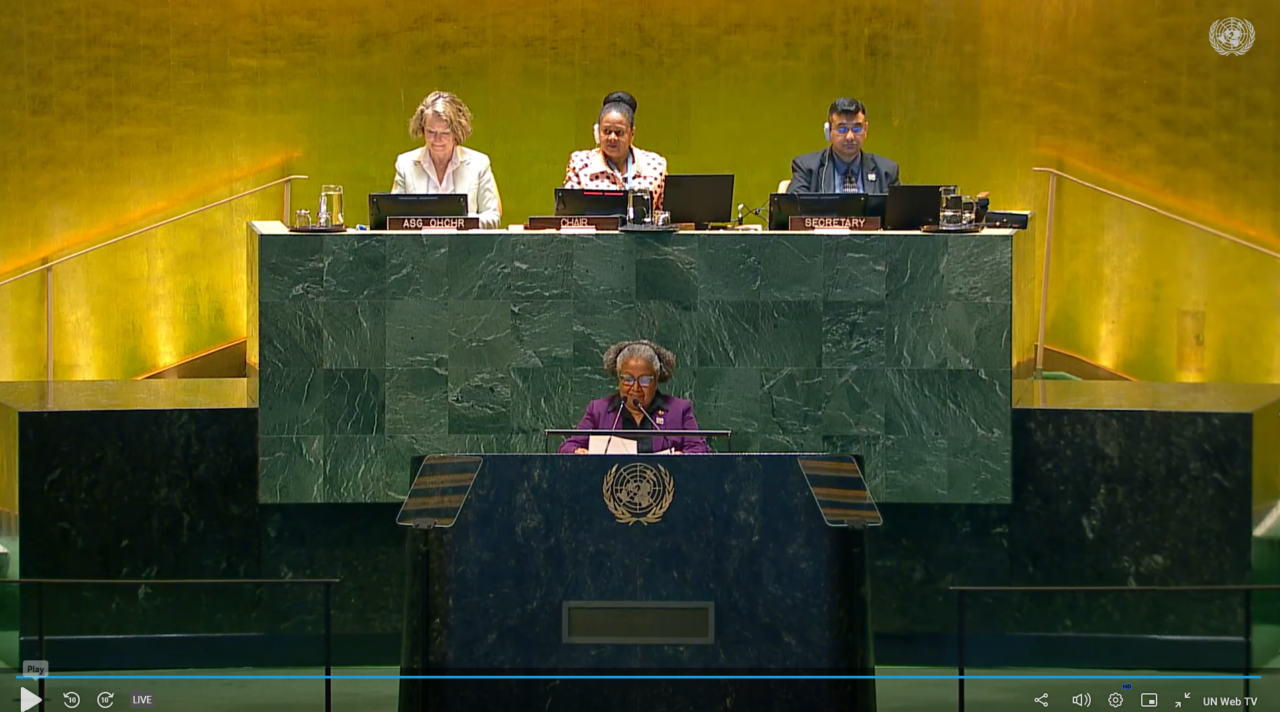
CARICOM Secretary-General, Dr Carla Barnett, delivered remarks at the Opening High-Level Segment of the Fourth Session of the Permanent Forum on People of African Descent.
Please read her remarks below:
- Distinguished Guests;
- Ladies and Gentlemen.
I am pleased to join this gathering of delegates to the Fourth Session of the Permanent Forum on People of African Descent and to bring warm greetings on behalf of the Caribbean Community (CARICOM).
I extend my commendations to Dr. June Soomer, a distinguished daughter of the Caribbean, for her stewardship of this important body and achievements over the past year. I also congratulate Ambassador Martin Kimani on his upcoming appointment as Chairperson of the Forum and wish him much success during his tenure.
This Fourth Session, convened under the theme “Africa and people of African descent: United for reparatory justice in the age of Artificial Intelligence”, coincides with the commencement of the United Nations Second Decade for People of African Descent.
The Permanent Forum has established itself as an important consultative body with a vital role to play in championing economic, social, digital and, especially important, reparatory justice for Africans and African-descended people globally. Given the insightful conclusions and recommendations from the previous Sessions, and the transformative agenda which it has been promoting within the framework of the United Nations, we support the call for greater resources for the Permanent Forum to continue to effectively address its important agenda.
Systemic inequality, racial discrimination, and reparatory justice for the global African community continue to be priority areas to be addressed during the Second Decade.
This Second International Decade for People of African Descent provides renewed impetus to advance CARICOM’s own reparations agenda for repair, justice, and the development of people of African descent, as well as the Indigenous people. It is an opportunity to confront the consequences of European colonisation and enslavement, and to call attention to the enduring legacies of these historical injustices.
Of importance also is that the African Union (AU) is observing 2025 as the year for “Justice for Africans and People of African Descent through Reparations”.
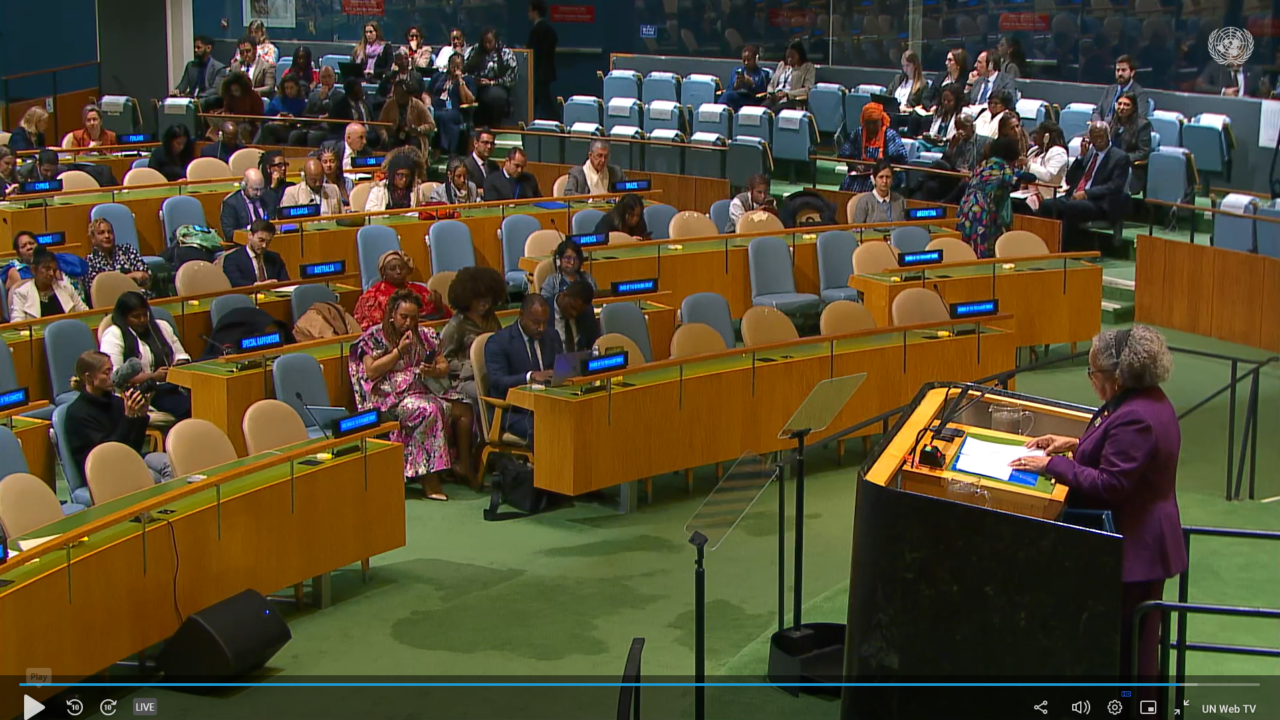
Distinguished guests, at their Meeting in July 2024, CARICOM Heads of Government expressed full support for increased participation and collaboration by the Region in the meetings and work of this Permanent Forum. The CARICOM Reparations Commission, in particular, stands ready to collaborate with the Permanent Forum to advance material improvements for people of African descent as outcomes of the Second International Decade, and especially for women, children and youth.
As the partnership between the Caribbean Community and the African Union continues to grow, the demand for justice and development is a common call. We in CARICOM are pleased that this partnership is being strengthened, with milestone collaborations through the First Africa-CARICOM Summit of Heads of Government held in September 2021; the high level AU Study Tour to Barbados, in August 2023, which focused on developing stronger CARICOM-AU cooperation on reparations and racial healing; and the participation of government and civil society representatives from our Region in the Accra Reparations Conference hosted by the Republic of Ghana in November 2023.
CARICOM looks forward to the Second CARICOM-AU Summit to be held in Addis Ababa, Ethiopia on 7 September 2025, and other strategic engagements to advance our shared agenda.
The Honourable Mia Amor Mottley, Prime Minister of Barbados and Chair of the Conference of CARICOM Heads of Government, was invited to address the AU Assembly in February this year, where she reaffirmed CARICOM’s commitment to a strong partnership with Africa towards a shared prosperous future.
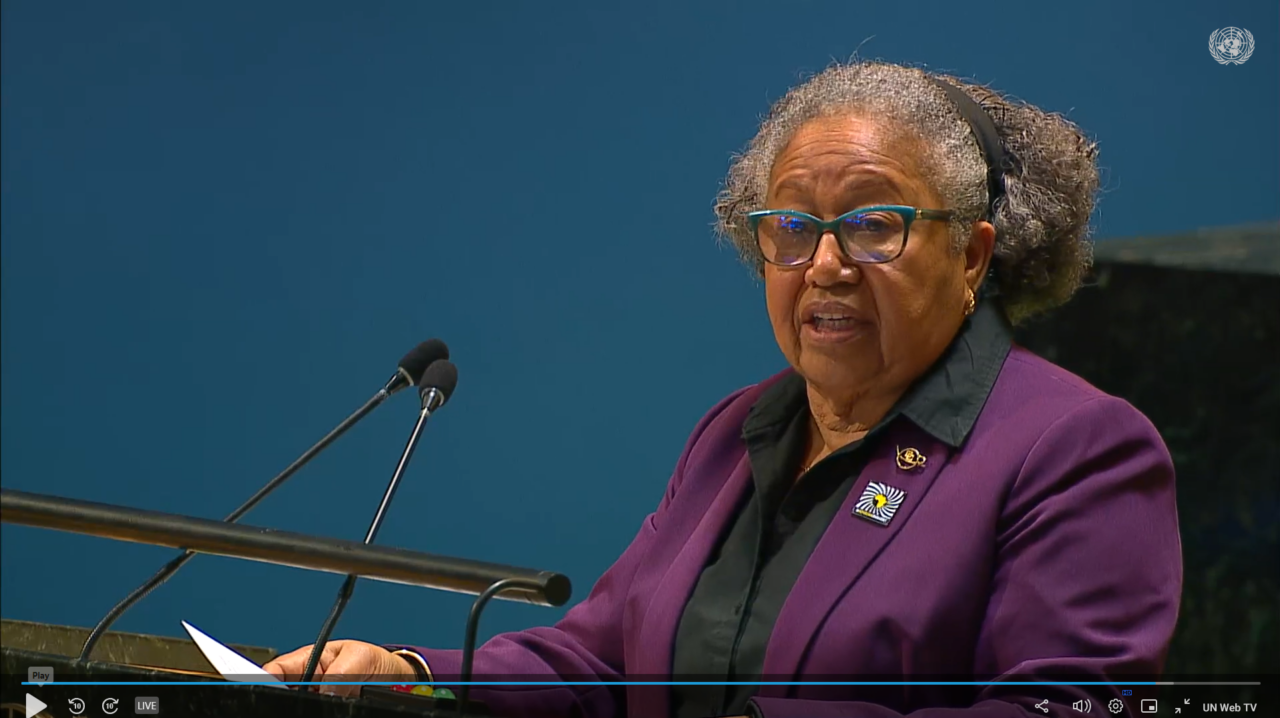
Excellencies, ladies and gentlemen, reparations for Haiti continue to be central to CARICOM’s reparations claim. April 2025 marks the bicentenary of the indemnity of 150 million Francs imposed on Haiti by France, as reparations for loss of property, including enslaved Africans, and as a precondition for recognising the island’s independence. The negative economic and social effects of this historical injustice are painfully clear with arguable links to the situation in Haiti today, and as such, I commend the Forum for putting the spotlight on Haiti in your Closing Session. This Anniversary presents an opportunity to bring global attention and a deeper understanding of the situation in Haiti, and serves as a call to action to address the ongoing security, humanitarian and governance crises in the country.
The themes of reparatory justice and economic justice have been consistent on the agenda of the Permanent Forum, as is appropriate. For this Fourth Session, digital justice is also being highlighted. As Artificial Intelligence (AI) continues to develop exponentially, Africans and people of African descent, are at risk of being further left behind. Inequitable access to AI tools and training further widens the digital divide, disadvantaging and leaving people of African heritage, and their businesses ill-equipped to effectively compete in a rapidly evolving global economy in which AI is increasingly a critical factor.
To navigate these vulnerabilities, it is important for the Permanent Forum to advocate for inclusive policy frameworks and initiatives, investments in digital literacy, science and technology, and innovation. If we are to thrive in this era, we must prioritise education and innovation, and advocate for inclusive governance frameworks.
Africa has long been a wellspring of knowledge and innovation in mathematics, engineering, astronomy, agriculture, traditional healing and philosophy. This legacy must now be reclaimed and recognised in development and management, including regulation of Artificial Intelligence. We must also stand against the use of AI, through its applications and algorithms, to perpetuate racial discrimination.
Esteemed guests, this Fourth Session is an opportunity for us to pool our collective knowledge and expertise, and strengthen our commitment to improve the lives of Africans and people of African descent all over the world. I encourage everyone to continue to work together to eradicate deeply embedded structures of racism and inequality, and build inclusive societies where the human rights of all people, including African people, are respected. I wish the Permanent Forum continued success and fruitful deliberations.
Thank you very much, ladies and gentlemen.

